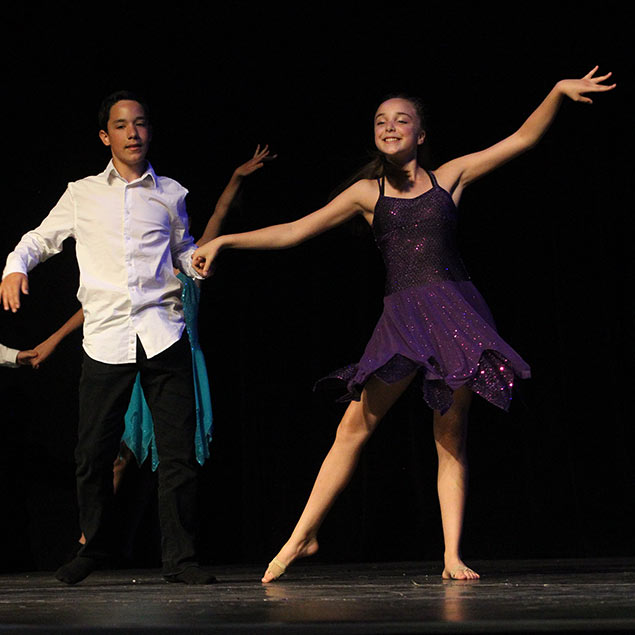Have Fun in Your Dance Lesson – With ANY Partner

Whether it’s your partner-for-life, or your group partner of the moment, sometimes you’re going to figure a step or technique faster than they do. A common reaction for many is to try and ‘make’ them get it faster, by critiquing or moving them where you think they should be. Ultimately, this usually just causes friction and slows your labouring partner down.
A better use of your time might be to turn the lens on yourself and ask, ‘what can I do on my end of the partnership?’ Here’s a few suggestions.
1. Rise to the challenge.
Okay, you’ve got to endure the soft leads or spaghetti-arm follows while your partner catches up. Why not treat it as a challenge, and see if you can still work with what you are given? For example, if back-leading is your favourite sin, can you wait until you feel a clear lead? Or leaders, can you gently increase the assertiveness of your lead, WITHOUT yanking your partner through the step? This builds your ability to respond to your partner, without usurping their role in the partnership.
2. If you know the step, work the step.
Most beginner dancers work a step until it reaches a barely functional level before they start getting impatient. This approach to learning is a bit like burning a plate of of mac and cheese and calling it cooking. If your partner needs more time to figure their side out, why not spend it making your side look even better? Here’s just a few things we can always pay more attention to, no matter the step:
- Posture
- Frame
- Floor pressure
- Hip motion
- Proper heel, or toe leads
Don’t be afraid to ask your instructor, if you’re not sure what to work on. Remember: someone who really knows the step can make it look good dancing with anyone.
3. If they are having obvious difficulty, suggest they ask the instructor.
Sometimes, your partner might be shy, and nervous about asking the instructor for help, or they might even ask you for help instead. I know, it’s tempting to give them the best answer you have, but if you really want to help them improve, let them know it’s both safe and a good idea to ask the teacher. That way, they learn it’s okay to ask for help – and you are not accountable if they do something wrong! Finally, never ask for help on their behalf, unless they specifically ask you to do so.
I still remember the feeling of impatience from my partner as I struggled to learn the patterns that are second nature to me today. But if my partner had just made it clear they had plenty to work on until I caught up, that would have taken the pressure off. So take my advice, and you’ll both learn faster for it.
About the Author
Ian Crewe has been dancing ballroom for over 18 years, and has a Licentiate in American smooth and rhythm. His passion for dance and his endless seeking for ways to reach new audiences eventually led him to blogging and the World Wide Web. Ian currently teaches at the Joy of Dance Centre, Toronto, ON, Canada.

